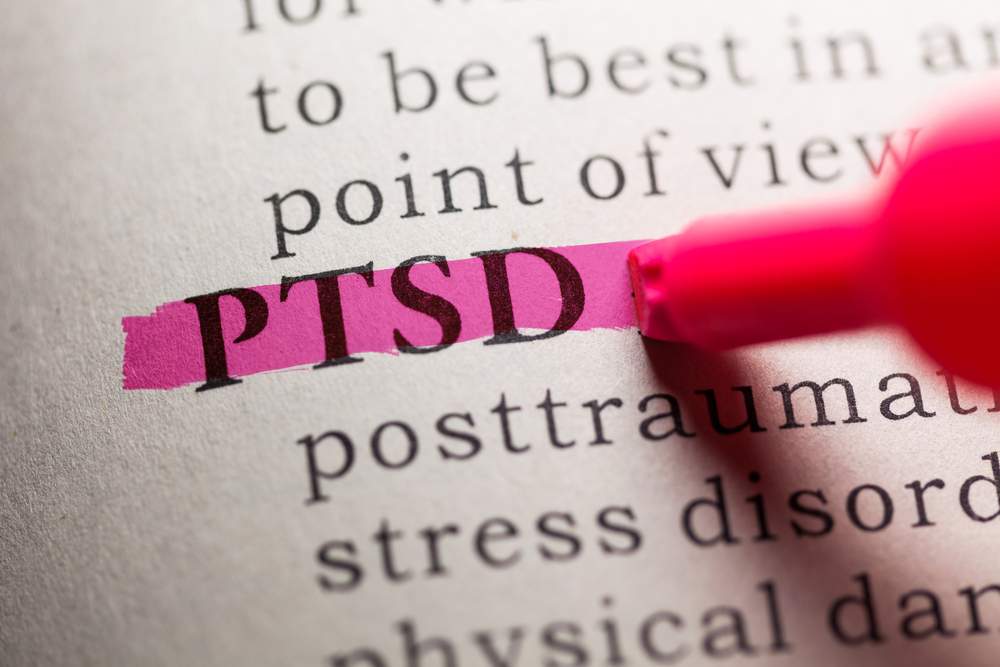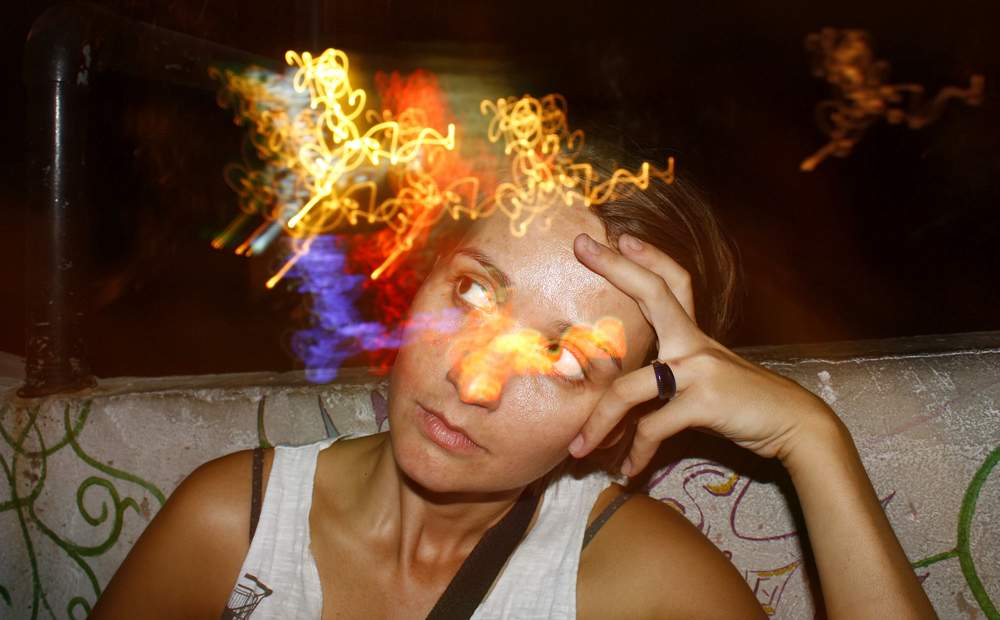If you decide to journey away from your homeland and out into the big world any time soon, you need to be aware that it is not just physical perils that may confront you – there are also a number of peculiar psychological disorders that attack those who decide to travel outside of their comfort zones.
This article, besides allowing the traveling reader to realize how special they are if they have never had to deal with any of these disorders, hopes to marginally expand the readers understanding of the often unacknowledged obstacles travelers must cope with on – as well as off – the road.
Paris Syndrome

Do you remember how empty and terrible you felt at around 11.30am on Christmas morning when the gifts were finally all unwrapped and grim reality set in? Now imagine you had to fly halfway around the world to get to Christmas, you couldn’t communicate with any of the grownups, and you weren’t sure if you were going to open boxes of toys or spiders. This, in a nutshell, is Paris Syndrome.
“Paris Syndrome typically affects only Japanese tourists visiting Paris. It strikes roughly 20 victims each year, generally women in their mid-thirties.”
Clinically speaking, Paris Syndrome is associated with delusions, hallucinations, persecution complexes, loss of connection to reality, anxiety, sweating, and increased heart rate/sex drive. Luckily (or unluckily if you happen to be from a certain Pacific Archipelago) Paris Syndrome typically affects only Japanese tourists visiting Paris. It strikes roughly 20 victims each year, generally women in their mid-thirties. Although the chances of any individual being stricken are small, the threat is deemed great enough for the Japanese embassy in Paris to maintain a twenty-four hour hotline for travelers on the edge.
The disorder was first identified by Professor Hiroaki Ota, a Japanese psychiatrist working in France. According to his 1998 article on the subject, found in the Journal of the Nissai Hospital, there are several main causes of the syndrome. The first is confusion, both linguistic and cultural.
Not only is a sufferer unable to communicate with the French, but they are also unable to cope with the informality and rudeness of Parisian culture, as compared to the highly structured system of behavior in their home nation. Moreover, there is also an element of acute disappointment, as the tourist learns that the France created in his/her mind or by Japanese popular culture bears little resemblance to the real world. When these factors are compounded with the exhaustion from jet-lag, long bouts of sight-seeing, and being lost in a new city, the resulting manic state becomes far more understandable.
>> Check out the most beautiful Metro stations in Paris
Culture Shock

Travel is fun, broadening and cool until suddenly, it just isn’t. The turning point could happen at any point in your travels; from disembarking in Heathrow and discovering they call the French fries something different, to realizing after several years of living in Korea that you really hate kimchi. For others, it’s the exact moment when their new significant other’s cute accent stops being exotic and ends up being annoying. Worst of all, perhaps the feeling is prompted by danger or betrayal, such as constant harassment or racism.
“Out of all the conditions on the list, culture shock is by far the most common. Nearly every traveler has to cope with it at some point, although that certainly doesn’t make it seem any less dire.”
Accompanying this turning point is a wave of emotions and clinical symptoms. Helplessness and loss of vigor are common, as is turning away from the host culture and resorting to stereotypes and/or eating at McDonald’s several times a week. Suffers are likely to feel irrational anger and often experience the sensation of being “tricked” or “seduced” by their host culture, as it often follows a period of intense love for a new place. Homesickness is often experienced, and – for those in bacteria-laden environments – real sickness, as depression knocks the immune system off-kilter.
Out of all the conditions on the list, culture shock is by far the most common. Nearly every traveler has to cope with it at some point, although that certainly doesn’t make it seem any less dire. For those with the resources or the liberty to do so, the solution may be just simply to pop home for a bit and recharge one’s batteries. For others, the only solution is to work through it – although culture shock is no picnic, it’s often marks a transitional period between a superficial and a deeper understanding of a new home.
>> Get tips for traveling in developing nations
Reverse Culture Shock

The world is an awfully big place and chances are, if you are a traveler, you find the rest of it a lot more interesting than your particular tiny corner of it. That’s commendable and can be the start of a seriously rewarding hobby or lifestyle, but most of us have to go home again. The problem with that is that sometimes home can feel stranger than the world out there.
“The best thing to do is treat your home like a new place and let yourself adjust to it organically.”
If you are suffering from any of the other conditions right now, this might be hard to believe, but eventually most travelers get used to the difficulties inherent in voyaging. After all, when you’re doing it in a foreign language, even asking where the bathroom is can be an accomplishment.
Returning to a place where everything is easy and you know all the rules can seem an awful lot like quitting or losing your edge. Or worse, you might find that your time abroad has shown you the many flaws inherent in your own society. Maybe you’ll just find yourself waking up at 3am craving couscous with the knowledge that you have the whole Atlantic between you and the first decent plate.
Whatever you feel in this situation, it’s extraordinarily important you don’t wallow in it. Although your friends and family back home are sure to thrill at your tales of life out there, no one wants to hear you lamenting how bad the Indian food here is, or catch you dismissing your home as uncultured or boorish. The best thing to do is treat your home like a new place and let yourself adjust to it organically. Maybe you’ll end up finding new things to love, and if not, you can start saving up for a new flight.
>> Learn more about reverse culture shock
Post-Traumatic Stress Disorder

Despite all the steps that cautious travelers take to ensure safety, there are many things that can go utterly and cataclysmically wrong. Even travelers in more settled areas of the globe cannot rule out dangerous situations arising; if there’s one thing the last ten years have shown, accidents, disasters, and political situations can affect anywhere, transforming a vacation into an exercise in survival.
“Many sufferers report feelings of numbness and detachment, both towards the incident and towards their old lives. They may become listless or irritable, and find life to be impossible to cope with.”
Yet for many, the real trials come after the terror, when the adrenaline wears off and the sheer implausibility of the situation reveals itself. Known as Post-Traumatic Stress Disorder or PTSD, a whole suite of behaviors and emotional reactions often develop in response to life or death situations. These symptoms can be flashbacks or reliving of the incident, either in dreams, uncontrollable memories or hallucinations, or in hyper-vigilant reactions to normal stimuli, such as taking evasive maneuvers at the sound of a dropped plate.
Many sufferers report feelings of numbness and detachment, both towards the incident and towards their old lives. They may become listless or irritable, and find life to be impossible to cope with. In situations with loss of human lives, the survivors may become paralyzed with “Survivor’s Guilt,” and find themselves unable to rationalize why they, out of everyone lived through a disaster. People afflicted with PTSD have higher incidences of depression, alcoholism, and other related medical conditions.
Certainly, PTSD is the most serious out of the entire list. Those suffering from symptoms, or indeed, who have been through any extraordinarily high stress situations, should seek professional help immediately. With an early diagnosis, strong social support, and prompt treatment, the US National Library of Medicine indicates a good chance of ameliorating or stopping the symptoms.
>> Learn about travel insurance options
Stendhal Syndrome

Travelers tend to spend countless hours each day viewing art. Indeed, to see great art is one of the primary motivations for travel. Art revokes the time and space we inhabit and vacuums us into the aesthetic world, twisting our sensibilities in strange and pleasurable ways. But what if when you saw a beautiful work of art you suffered? What if your breath constricted, your heart began throbbing, and you became dizzy and confused, or began hallucinating?
“Dr. Graziella Magherini in her book La syndrome de Stendhal explains that Stendhal syndrome most commonly occurs in tourists who stress themselves out by attempting to see too much while visiting a city famous for its museums and art galleries.”
These are the unfortunate symptoms of those who suffer from Stendhal Syndrome, a psychosomatic illness named after the 19th-century French writer Stendhal, who first described his overwhelming anxiety and tendency to faint while viewing art during a trip to Italy in his book
Naples and Florence: A Journey from Milan to Reggio.
The affliction can affect anyone overly sensitive to artistic masterpieces, but it most commonly strikes – understandably – in Florence, Italy. In fact, the syndrome occurs so frequently in this part of the world that hospital staff workers in the area can usually easily recognize afflicted patients when they stumble into the hospital disoriented, sometimes with museum brochures still in hand.
Dr. Graziella Magherini in her book La syndrome de Stendhal explains that Stendhal syndrome most commonly occurs in tourists who stress themselves out by attempting to see too much while visiting a city famous for its museums and art galleries. Travel experts advise tourists to not attempt to take everything in at once, and that those who love art balance their time between viewing art and doing other things, like bicycling or drinking.
>> Get tips for visiting Florence (and avoiding Stendhal Syndrome)
Mefloquine-Related Neuropsychiatric Effects

Those travelling to countries with tropical climates and malaria-carrying mosquitos have basically four choices when it comes to anti-malarial drugs: chloroquine, doxycycline, a combination of atovaquone and proguanil hydrochloride (Malarone), and – where the local strains of malaria have developed a resistance to these – mefloquine, which is used both to prevent and to treat malaria. All of these drugs come with a bundle of potential side-affects, but only mefloquine offers users a potential dance with psychosis.
Mefloquine was initially developed as a treatment for malaria by the US Army in the 1960s, and the first victims of its adverse side effects were soldiers.
“All of these drugs come with a bundle of potential side-affects, but only mefloquine offers users a potential dance with psychosis.”
Although rare, the FDA product guide states mefloquine can cause mental health problems including: anxiety, hallucinations, depression, abnormal and violent behavior, insomnia, psychosis and suicidal ideations.
Indeed, those with a history of mental illness are advised to be extremely cautious when considering the drug. The most common effect reported among travelers that I’ve met taking the drug, however, have been lucid dreams and unusually severe onslaughts of paranoia when mixed with cannabis. Check with your doctor to make sure the drug is right for you.
>> Read our FAQs about Malaria
Jerusalem Syndrome

About two million tourists from around the world visit Jerusalem each year. Many of these sight-seers are devoutly religious and have journeyed far distances to walk in the alleged footsteps of characters mentioned in the sacred books of the Abrahamic religions. Thus it may or may not be a surprise that some 50-200 people a year (e.g. about one every three days) are referred to psychiatric care on account of religiously-themed obsessive ideas, delusions or other psychosis-like experiences. This phenomenon is known as “Jerusalem Syndrome”.
“It is characterized by a temporary – but intense – religious-themed psychosis whereby people previously considered devoid of any signs of psychopathology becomes bat-shit crazy after arriving in Jerusalem.”
The affliction was first clinically described in the 1930s by Jerusalem psychiatrist Heinz Herman, one of the founders of modern psychiatric research in Israel. It is characterized by a temporary – but intense – religious-themed psychosis whereby people previously considered devoid of any signs of psychopathology becomes bat-shit crazy after arriving in Jerusalem. The symptoms typically leave the sufferer within a few weeks, or after they are removed from the area.
Most of those who undergo this strange phenomenon are taken to the state psychiatric ward, Kfar Shaul, on the outskirts of West Jerusalem. Examples include a Canadian Jew who believed himself to be Samson and attempted to smash through the wall of his room, and an English Christian woman who regularly brought tea up to Mount Scopus to welcome back Jesus, whom she believed might arrive every afternoon. A particularly severe and often mentioned incident occurred in 1969, when an Australian Christian named Denis Michael Rohan was thunderstruck with the prophecy that he needed to clear Haram ash-Sharif of non-Christian buildings and set fire to the Al-Aqsa Mosque.
>> Discover the world’s most religious cities
Mean World Syndrome

This last illness does not affect those who hit the road, but rather may be the impetus deterring those who refuse to travel.
Imagine you live in, say, a comfortable suburban home somewhere in the Midwestern U.S.A. You’re a respectable member of the community, have a loving family to care for, work a tough job and – when you get home – just like to take it easy, maybe turn on Fox News to get an earful of what’s going on in the big ole world. But immediately an overwhelming sense of dread invades you.
Flashing before your eyes is a montage of destruction, perversion, murder, unbiblical sex, corruption, volcanoes and death, staggering amounts of death. There is this nebulous zone far out near the Holy Land that the keeps coming up on the map, followed by bomb-blackened cities, burned children, soldiers machine-gunning enemies, men praying in unfamiliar ways and mullahs shouting from podiums (you don’t understand the words but know it has something to do with hatred because the background music is terrifying).
“This is Mean World Syndrome, when the mass media has made viewers believe the world is a lot more frightening than it truly is. It is very much an illness, and will very much bring about negative effects in one’s life.”
Because you have absolutely no experience of any culturally alien place, and because the only image in your mind of these places has been built by a media outlet that thrives on fear and conflict, you begin to think the world
out there is an overwhelmingly sinister and dangerous place.
This is Mean World Syndrome, when the mass media has made viewers believe the world is a lot more frightening than it truly is. It is very much an illness, and will very much bring about negative effects in one’s life. The term was coined George Gerbner, the founder of cultivation theory who researched the effects of television on society and found that viewers who watched a lot of television tended to think of the world as an intimidating and unforgiving place.
“Whoever tells the stories of a culture really governs human behavior,” Gerbner said in regards to his findings. The best way to combat this syndrome is to share our stories with those who think this way, not to insult them, but to reveal to them an alternative paradigm of a much-less-frightening world, one they are unfamiliar with.







